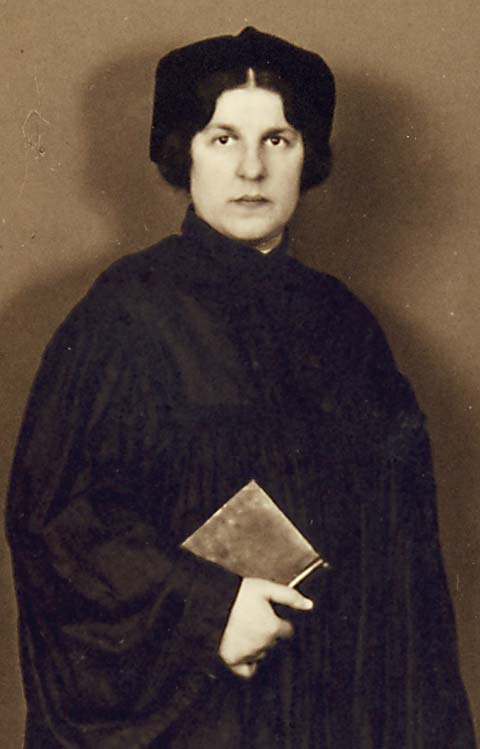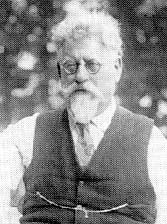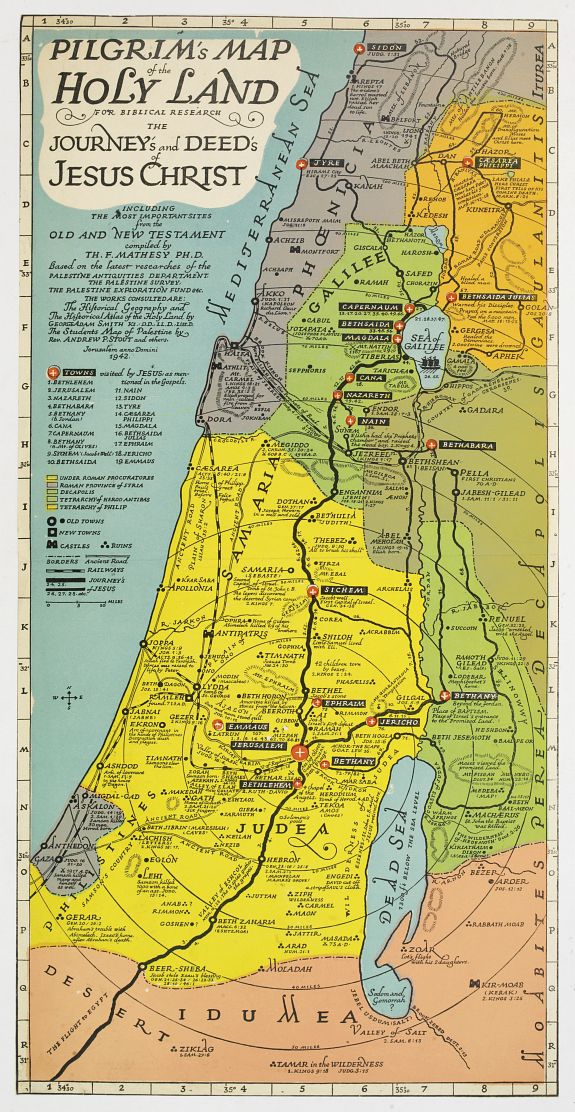 True Random Number Generator 25 Powered by RANDOM.ORG
True Random Number Generator 25 Powered by RANDOM.ORGComment 25 is from Bob Derrenbacker, who said, "See you in San Diego":
See you in San Diego!
Well, Bob, you'll now have one less book to buy at SBL!
 True Random Number Generator 25 Powered by RANDOM.ORG
True Random Number Generator 25 Powered by RANDOM.ORG A couple days ago I was alerted to this short article by Rabbi Laura Geller. Geller showcases Regina Jonas (1902–1944). Jonas studied at the Higher Institute for Jewish Studies in Berlin until 1930 in prelude to her ordination (conducted in a private ceremony). Until very recently Regina Jonas was all but unknown to historians. She is now commemorated as the first female rabbi. While her story began to surface in the 1970s, Katharina von Kellenbach (author of this amazing and devastating book) discovered documents that confirmed Jonas' ordination in 1991. For more on Regina Jonas, see here. But Rabbi Geller's article should be read in full too for a unique window into social memory.
A couple days ago I was alerted to this short article by Rabbi Laura Geller. Geller showcases Regina Jonas (1902–1944). Jonas studied at the Higher Institute for Jewish Studies in Berlin until 1930 in prelude to her ordination (conducted in a private ceremony). Until very recently Regina Jonas was all but unknown to historians. She is now commemorated as the first female rabbi. While her story began to surface in the 1970s, Katharina von Kellenbach (author of this amazing and devastating book) discovered documents that confirmed Jonas' ordination in 1991. For more on Regina Jonas, see here. But Rabbi Geller's article should be read in full too for a unique window into social memory.My own position is not Fundamentalist, if Fundamentalism means accepting as a point of faith at the outset the proposition “Every statement in the Bible is completely true in the literal, historical sense.” That would break down at once on the parables. All the same commonsense and general understanding of literary kinds would forbid anyone to take the parables as historical statements, …. Books like Esther, or Jonah, or Job which deal with otherwise unknown characters living in unspecified period, & pretty well proclaim themselves to be sacred fiction.
Such distinctions are not new. Calvin left the historicity of Job an open question and, from earlier, St. Jerome said that the whole Mosaic account of creation was done “after the method of a popular poet.” Of course I believe the composition, presentation, & selection for the inclusion in the Bible, of all the books to have been guided by the Holy Ghost. But I think He meant us to have sacred myth & sacred fiction as well as sacred history.I think that many Bible professors wish that their students possessed the category of "sacred fiction" as Lewis did. For too many, the category of "fiction" precludes the qualifier "sacred." But until this category is in place, the category of "sacred history" will be misunderstood.
 |
| Rudolf Rocker |
[According to Chamberlain] the German is the specially chosen minister of the Protestant mission, through which Christendom is first made aware of its true content. That the Christian had thoughtlessly chosen the Jew, Jesus, for his savior was surely a bitter pill; it was too late to undo that.
But was it not written in the Gospel that Christ first saw the light in Galilee? And immediately the "instinct of the race" came to Chamberlain's aid and informed him that in just this part of Palestine extensive crossing of races had occurred and, above all, that in Galilee Germanic stocks had settled. Must one not, then, admit that Christ had been a German? It was, in fact, unthinkable that out of "materialism drunken Jewry" a doctrine could come to whose spiritual content the Jewish mind is completely opposed.
Chamberlain revealed an utterly morbid hatred of everything Jewish. He even ventured to assure his credulous readers that a Germanic child, the keenness of whose senses had not yet been ruined or blunted by the prejudices of adults, could tell instinctively when a Jew was near him....To be sure, he based his preference for the Sephardim on the assumption that they were in reality Goths who had been converted to Judaism in large numbers--a recognition which came to the great master of unproved assertion rather tardily, as it first appears in the third edition of his book. How the Goths, those genuine branches of the noble tree of Germandom, in spite of their "mystic inclination" and their inborn sense of "religious profundity," which according to Chamberlain are the heritage of their race, could throw themselves into the arms of "materialistic Judaism" with its "dead ritualism," its slavish obedience," and its "despotic God" remains an unsolved mystery. In this case the "race in their own bosoms" must have failed outright; otherwise the wonder is not explained. There is hardly another work which reveals such unexampled unreliability in the material used and such reckless juggling with bare assumptions of the most daring type.
 Readers of the Jesus Blog may want to take note that Baylor University Press has now released the most recent Wayne Coppins (and Brian Pounds) translation of Jens Schroeter's work. This book, Jesus of Nazareth: Jew from Galilee, Savior of the World, is a more accessible and student-friendly study by Schroeter that starts with the historical Jesus and goes up through modern artistic representations of Jesus. It's a little lighter on methodology than his From Jesus to the New Testament, but still includes a really good opening chapter on what we mean when we talk about the historical Jesus and what historians can hope to grasp in their efforts. Another strength is that Schroeter often includes archaeological evidence in the discussion. The German original, Jesus von Nazaret, was first published in 2006 and it has already gone through at least three editions. For anyone unfamiliar with the work of Prof Dr Schroeter, this will be an ideal place to start. I'm really happy to see Baylor University Press taking the initiative to bring this book out in English. It's also featured in their ad on the side of this blog. You can click through that ad to order your own copy. I think as well that we probably need to have a giveaway of this book.....
Readers of the Jesus Blog may want to take note that Baylor University Press has now released the most recent Wayne Coppins (and Brian Pounds) translation of Jens Schroeter's work. This book, Jesus of Nazareth: Jew from Galilee, Savior of the World, is a more accessible and student-friendly study by Schroeter that starts with the historical Jesus and goes up through modern artistic representations of Jesus. It's a little lighter on methodology than his From Jesus to the New Testament, but still includes a really good opening chapter on what we mean when we talk about the historical Jesus and what historians can hope to grasp in their efforts. Another strength is that Schroeter often includes archaeological evidence in the discussion. The German original, Jesus von Nazaret, was first published in 2006 and it has already gone through at least three editions. For anyone unfamiliar with the work of Prof Dr Schroeter, this will be an ideal place to start. I'm really happy to see Baylor University Press taking the initiative to bring this book out in English. It's also featured in their ad on the side of this blog. You can click through that ad to order your own copy. I think as well that we probably need to have a giveaway of this book.....
Status updates on Facebook are dangerous these days. My most recent Facebook update “just read Dale Allison's excursus on the Kingdom of God in Constructing Jesus - remarkable: wish I could go back and tell various undergraduates that they might not have been as incorrect as I led them to believe” resulted in a surprising invitation from Anthony Le Donne to do a guest post about the kingdom of God with a few insights from my recent reading of Constructing Jesus. This is a kind offer, which I shall take very literally, sharing only “a few insights” that will hopefully direct others to Allison’s characteristically insightful discussion.
It is not uncommon to find students equating the kingdom of God with a notion of “heaven” in the sense of “a place up there” or “a place that Christians will go to after they die”, and I have tended to respond by saying something like “we shouldn’t think of the kingdom of God as ‘a place that is somewhere else up in heaven’, but as a way of speaking of God’s kingly rule, as a way of speaking of what things look like when God rules as king”. I still hope that such words are not completely off target, but my reading of Dale Allison’s excursus on “The kingdom of God and the World to Come” in Constructing Jesus (pp.164-203) leads me to believe that my students might not be as wrongheaded as I suspected. mea culpa.
Rather than attempting to summarize Allison’s argument, let me pass on a few choice quotations from his excursus as a way of conveying something of its character:
“In Luke’s account of the passion, a repentant criminal crucified with Jesus entreats him, ‘Remember me when you come into your kingdom … Jesus responds, in the next verse, with the comforting promise ‘Today you will be with me in Paradise’ … Now given that Jesus does not correct or reject the criminal’s request, given that ‘paradise’ seems to be Jesus’ substitute for ‘your kingdom,’ and given that ‘paradise’ is always, in Jewish literature, a place—the garden Adam and Eve lived in, the garden the just enter at death, the garden that the redeemed will enjoy in the world to come—we have here evidence that Luke, like Matthew, could think of the kingdom as a locale, indeed as something akin to what later Christians meant by ‘heaven.’” (183-184; for Matthew see Allison’s affirmation/appropriation of Jonathan Pennington’s interpretation of the kingdom of heaven on p. 182)
“My judgment, then, is that hē basileia tou theou is, in the Synoptics, a realm as well as a reign; it is a place and a time yet to come in which God will reign supreme.” (201)
“So even though I have come to the conclusion that hē basileia tou theou is more often than not, in the Jesus tradition, God’s new world, that does not exclude other meanings. The term in fact is polysemous, so that in some verses we can scarcely decide whether basileia means ‘realm’ or ‘reign’ or both or perhaps even something else. Ulrich Luz recognizes this when he writes that the kingdom of God ‘is not only the sovereignty of God in a functional sense; it is also a particular place, in which one can be … or into which one can enter.’ Although I would prefer to turn this around—the kingdom ‘is not only a particular place … it is also the sovereignty of God’—the inclusive formulation ‘not only … also’ is right.” (202)
As this last quotation shows, Allison does not attempt to squeeze all the hē basileia tou theou texts into a single mold. What he does do, however, is provide strong arguments for the view that a good number of them mean something like God’s new world, which has at least some points of contact with what my students mean when they associate the kingdom of God with “heaven”. And so I must return to the drawing board and think about how best to talk about this key phrase, how best to discuss its continuities and discontinuities with what Christians have referred to as “heaven”, and how best to relate it to what happens on earth.
World News Daily Report is a news and political satire web publication, which may or may not use real names, often in semi-real or mostly fictitious ways. All news articles contained within worldnewsdailyreport.com are fiction, and presumably fake news. Any resemblance to the truth is purely coincidental, except for all references to politicians and/or celebrities, in which case they are based on real people, but still based almost entirely in fiction.It should also be pointed out that the images used for this story are also fake. The supposed discovery is a collection of wooden tablets discovered at Vindolanda in 1973. I'm grateful to snopes for this information. (By the way, if you ever get a chance to visit Vindolanda, I highly recommend it. It was my favorite day trip when I lived in Durham.) As for the image of Ignazio Perrucci, this is a fake too. I'm willing to be informed otherwise, but my best guess is that Perrucci himself is a fiction. It seems that there is an art historian by this name, but the person pictured by the fake story is Ken Klukowski. Klukowski's image was lifted from this page, in all likelihood. If I'm wrong about this, I'd like to apologize to Dr. Perrucci, his mother, and the Roman Catholic Church. But at this point, I'm only offering a fake apology.
 Following on from the post on the term ‘revolutionary’,
I want to look at another term that is commonly used in historical Jesus
research but which may also raise problems: ‘nationalism’. It is common enough
to read phrases such as ‘nationalistic movement, ‘Jewish nationalism’, ‘nationalistic
associations’, ‘nationalistic tendencies’ etc. Of course, as with any definition,
people may be using it in ways that are based on ancient understandings but terms relating to ‘nationalism’ are not always defined and carry problematic
connotations when studying the ancient world.
Following on from the post on the term ‘revolutionary’,
I want to look at another term that is commonly used in historical Jesus
research but which may also raise problems: ‘nationalism’. It is common enough
to read phrases such as ‘nationalistic movement, ‘Jewish nationalism’, ‘nationalistic
associations’, ‘nationalistic tendencies’ etc. Of course, as with any definition,
people may be using it in ways that are based on ancient understandings but terms relating to ‘nationalism’ are not always defined and carry problematic
connotations when studying the ancient world.